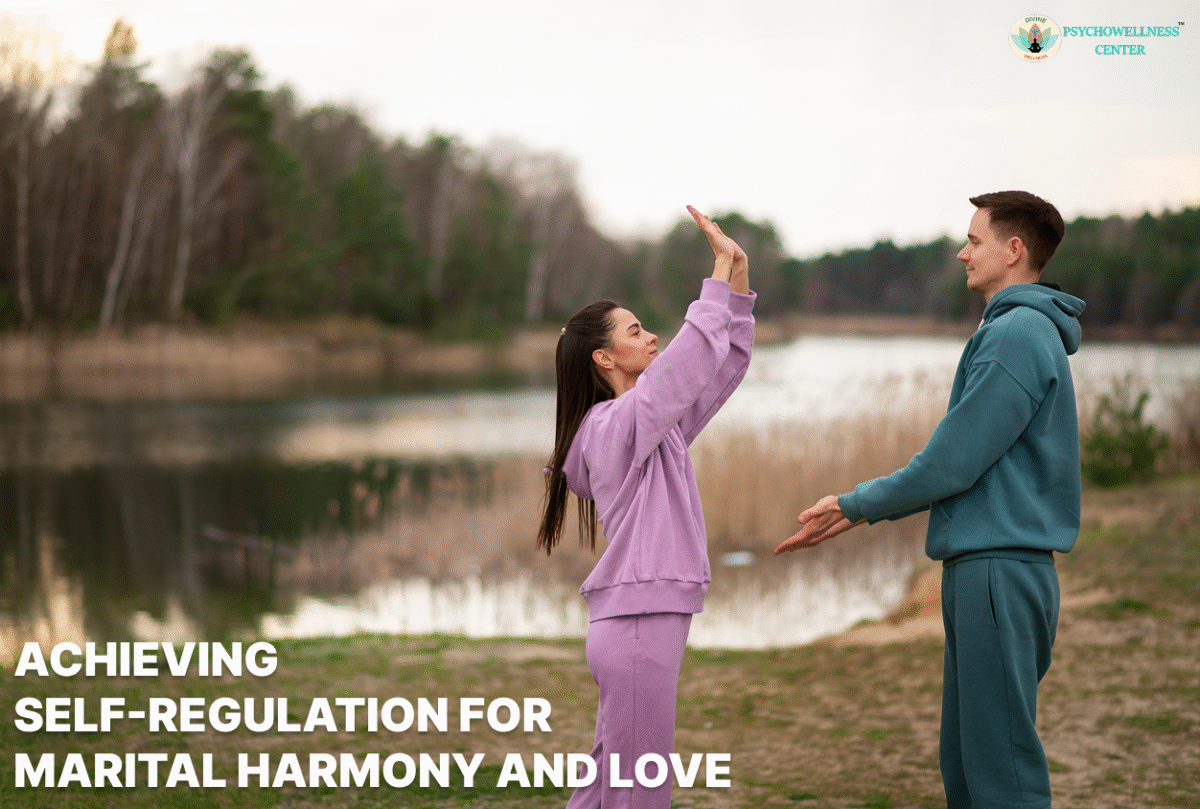Marriage is one of life’s most intimate, rewarding, and emotionally significant bonds. It offers companionship, support, and love, but it also presents inevitable challenges. Disagreements, external stressors, differences in communication styles, and unmet expectations can gradually strain even the strongest of relationships. In such moments, how couples respond to conflict and emotional triggers can determine the long-term health of their marriage. Self-control is essential in this situation.
Self-regulation, the ability to consciously manage one’s emotions, thoughts, and behaviours in accordance with personal values and long-term goals is not just a personal strength but a relational necessity. In a marital context, it enables individuals to respond with empathy rather than react impulsively, to pause and reflect instead of escalating conflict, and to stay emotionally connected even in times of disagreement. Cultivating self-regulation fosters mutual respect, emotional safety, and constructive communication, all of which are essential for building and sustaining marital harmony.
Achieving self-regulation within a marriage is not about suppressing emotions but about channelling them in ways that support intimacy, understanding, and enduring love.
1. Understanding Self-Regulation in Marriage
Self-regulation refers to the ability to consciously control emotional and behavioural responses, particularly in moments of conflict or stress. In marriage, it enables partners to:
- Respond rather than react impulsively.
- Maintain emotional stability during disagreements.
- Communicate respectfully, even in tense situations.
- Prioritise long-term relationship health over short-term emotional gratification.
Research highlights that couples with strong emotional regulation skills experience higher relationship satisfaction, greater trust, and fewer destructive conflicts (Karremans et al., 2017).
2. Why Self-Regulation is Vital for Marital Harmony
In close relationships, emotions run deep and can quickly escalate. Without self-regulation, small misunderstandings may spiral into major conflicts. By contrast, partners who regulate their emotions can:
- Diffuse tension: Avoiding impulsive reactions prevents escalation.
- Promote empathy: Staying calm creates space to listen and understand.
- Encourage problem-solving: Clear thinking fosters collaborative solutions.
- Preserve intimacy: Avoiding hurtful words or actions protects emotional bonds.
A study by Impett et al. (2015) found that individuals in satisfying relationships were more successful in regulating emotions, staying focused on shared goals, and supporting each other’s well-being.
3. Practical Strategies to Develop Self-Regulation in Marriage
- Cultivate Self-Awareness
The first step in self-regulation is noticing your emotional triggers. Mindfulness practices, such as daily reflection or meditation, increase awareness of bodily cues and thought patterns (Kabat-Zinn, 2015).
- Pause Before Responding
Implement the “Pause, Reflect, Respond” approach, taking a moment before speaking or acting in heated moments reduces impulsive reactions and allows for thoughtful responses.
- Use Mindfulness and Relaxation Techniques
Breathing exercises, progressive muscle relaxation, and grounding techniques help restore emotional balance in real time, preventing overreactions (Teper et al., 2013).
- Practice Co-Regulation with Your Partner
Self-regulation is amplified when both partners engage in co-regulation, mutually calming and supporting each other through active listening, validating emotions, and providing reassurance (Butler & Randall, 2013).
- Strengthen Communication Skills
Couples who use respectful language, “I” statements, and non-defensive listening foster trust and reduce emotional strain. These behaviors facilitate control under stressful situations.
- Seek Professional Guidance When Needed
When emotional regulation becomes difficult, couples can benefit from therapy approaches like Cognitive-Behavioural Therapy (CBT) or Mindfulness-Based Cognitive Therapy (MBCT). Online platforms such as TalktoAngel connect individuals and couples to top psychologists in India who specialise in relationship counselling.
4. Common Barriers to Self-Regulation in Marriage
- Emotional exhaustion: Stress from work or parenting can reduce emotional capacity.
- Past unresolved conflicts: Lingering resentments can lower tolerance levels.
- Personality differences: Different coping styles may cause friction without mutual understanding.
Couples might develop reasonable expectations and deliberate coping mechanisms by acknowledging these obstacles.
5. The Payoff: Marital Harmony and Lasting Love
Self-regulation in marriage isn’t about suppressing emotions, it’s about channelling them constructively to protect and nurture the relationship. Partners who commit to this practice experience:
- Greater marital satisfaction.
- Enhanced trust and emotional safety.
- Improved problem-solving and conflict resolution.
- A deeper sense of partnership and love.
Ultimately, self-regulation transforms conflicts into opportunities for growth, strengthening both the bond and the individuals within it.
Conclusion
Over time, self-regulation is a talent that may be acquired, honed, and improved. By cultivating self-awareness, practising mindful communication, and seeking professional support when necessary, couples can create a stable, loving environment where harmony thrives. In the journey of marriage, self-regulation isn’t just a strategy, it’s a lifelong investment in love.
For couples looking to enhance emotional regulation and strengthen their relationship, the Psychowellness Center, located in Dwarka Sector-17 and Janakpuri, offers in-person counselling sessions with the best psychologist near me, providing compassionate, evidence-based support for marital and emotional challenges. Additionally, TalktoAngel offers secure and confidential online counselling, making it convenient for couples to access expert guidance from the comfort of their homes. Both services are committed to nurturing healthier, more harmonious relationships built on empathy, understanding, and emotional balance.
This article presents insightful viewpoints from renowned Clinical Psychologist Dr. R.K. Suri and Counselling Psychologist Ms. Sangeeta Pal, who share effective strategies and methods aimed at building emotional resilience and supporting long-term mental health.
References
Butler, E. A., & Randall, A. K. (2013). Emotional coregulation in close relationships. Emotion Review, 5(2), 202–210. https://doi.org/10.1177/1754073912451630
Impett, E. A., Gordon, A. M., Kogan, A., Oveis, C., Gable, S. L., & Keltner, D. (2015). Moving toward more perfect unions: Daily and long-term consequences of approach and avoidance goals in romantic relationships. Journal of Personality and Social Psychology, 109(2), 239–261. https://doi.org/10.1037/pspi0000027
https://www.psychowellnesscenter.com/Blog/concept-of-inner-bonding-in-marital-relationship/
https://www.psychowellnesscenter.com/service-relationship-issues-counselling-delhi/

